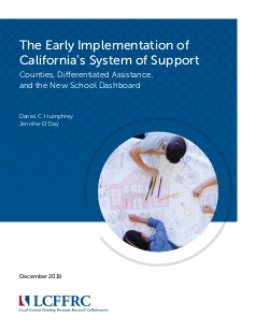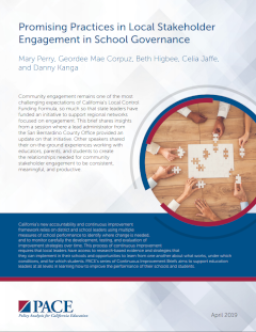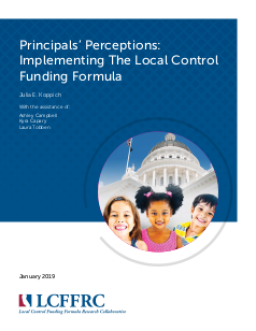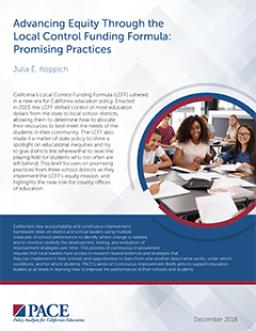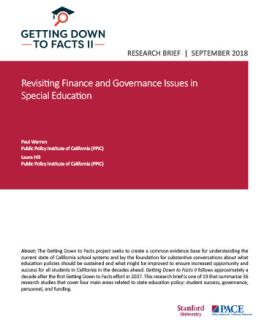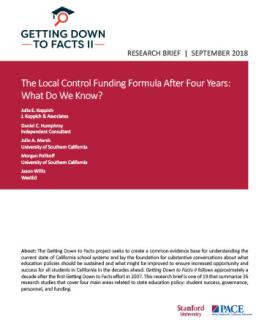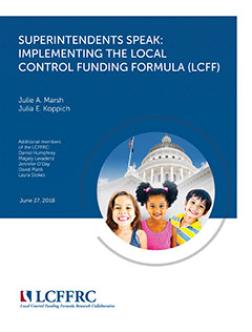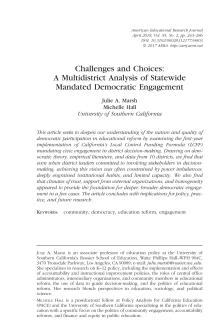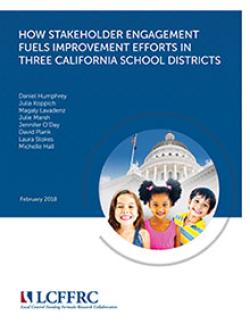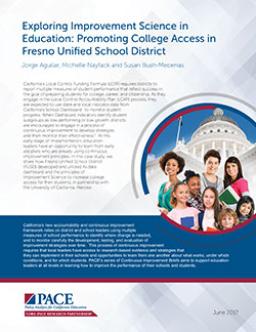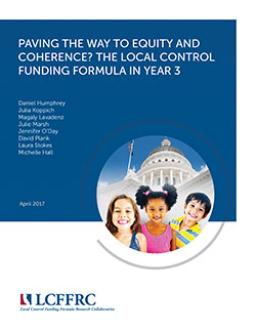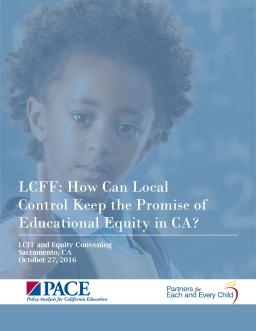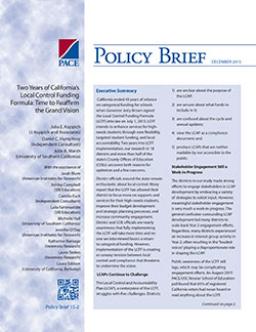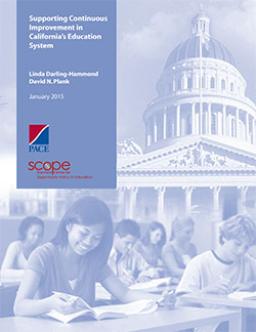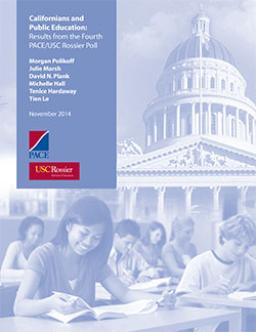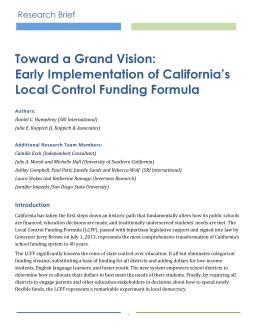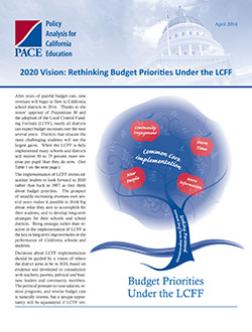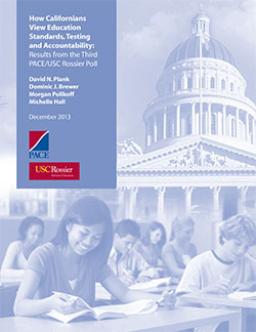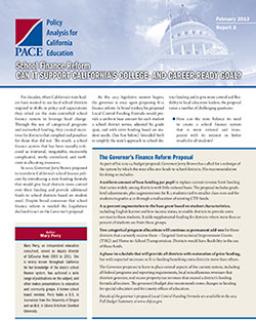Summary
This report examines the early implementation of California's Statewide System of Support, which is designed to empower local educators in determining the best approaches to improvement. While COEs and district officials hold positive views of the system's emphasis on support over compliance, they have concerns about under-resourcing and the effectiveness of the Dashboard measurement tool. The report provides five recommendations to make the System of Support a more comprehensive system aligned with the Local Control Funding Formula.
Summary
Summary
This report updates previous research on California's Local Control Funding Formula (LCFF) using a 2019 poll of California voters. Despite increased awareness, over half of voters are unfamiliar with LCFF. Support for the policy remains high but has decreased. Participation in LCFF engagement has increased but remains low, particularly among low-income voters. Low-income communities may not be meaningfully engaged in LCFF decision-making.
Summary
This report is the companion account of principal survey results from the Local Control Funding Formula Research Collaborative's (LCFFRC) fall 2018 surveys of stratified random samples of California superintendents and principals. The superintendent results were published in June 2018 in Superintendents Speak: Implementing the Local Control Funding Formula.
Summary
Summary
California's Local Control Funding Formula highlights low performance of special education students. Many districts allocate more base funding for all students into special education. A study found state funding growth has not kept pace with district costs, and the current formula inadequately funds preschool programs for infants and toddlers with disabilities. The study suggests better alignment between special education and the LCFF, and improved governance and accountability structures.
Summary
The Local Control Funding Formula (LCFF) shifts control of education dollars to local districts, enhancing resource allocation practices. However, inadequate base funds may constrain progress. Stakeholder engagement is evolving yet remains challenging, and school board involvement is typically modest. LCFF communication and accountability mechanisms receive mixed reviews. County offices of education have expanded their role but will need to increase their capacity. Public awareness of the LCFF lags, but it enjoys substantial support.
Summary
Summary
Summary
Summary
The Local Control Funding Formula gives local education leaders more power to allocate resources, but requires strategic budgeting practices to prioritize goals and make necessary tradeoffs. Three recommendations include integrating budgeting with strategic planning, focusing on critical questions, and developing internal structures to sustain strategic budgeting. These practices improve district policies and performance of local schools and students.
Summary
Summary
Summary
American schools have long suffered from inequitable distribution of funding, resources, and effective teachers. The LCFF reform in California is a promising solution to address achievement gaps for high-need students, but successful implementation is critical. Research has found that stakeholder engagement, explicit equity frameworks, and evidence-based programs are crucial to ensure positive impact. Studies have also revealed challenges such as underspending funds and insufficient stakeholder engagement, highlighting the need for continuous improvement.
Summary
The Local Control Funding Formula (LCFF) replaced categorical funding for schools in California in 2013, providing flexibility, targeted student funding, and local accountability. Two years in, research shows optimism and concern. The Local Control and Accountability Plan (LCAP) faces challenges, stakeholders need more engagement, and implementation requires capacity and overcoming the emerging teacher shortage. Public awareness of LCFF lags at 65%.
Summary
California's new accountability system aims to provide meaningful learning for students, allocate resources to schools and districts based on student needs, and offer professional development for educators. The system holds schools and districts accountable through Local Control Accountability Plans (LCAPs), professional accountability, and performance accountability across eight priority areas. This system is a departure from the state's previous policy of setting performance targets based on standardized test scores.
Summary
CA is undergoing significant changes in its education system. The Local Control Funding Formula (LCFF) has decentralized authority and responsibility, with the Local Control Accountability Plan (LCAP) focusing on local strategies for improvement. Common Core State Standards (CCSS) and Smarter Balanced Assessment Consortium (SBAC) aim for improved instruction and deeper learning, but require significant changes. A PACE/USC Rossier poll surveyed California voters on their knowledge and opinions on these changes, including the Vergara case, teacher employment policies, and charter schools.
